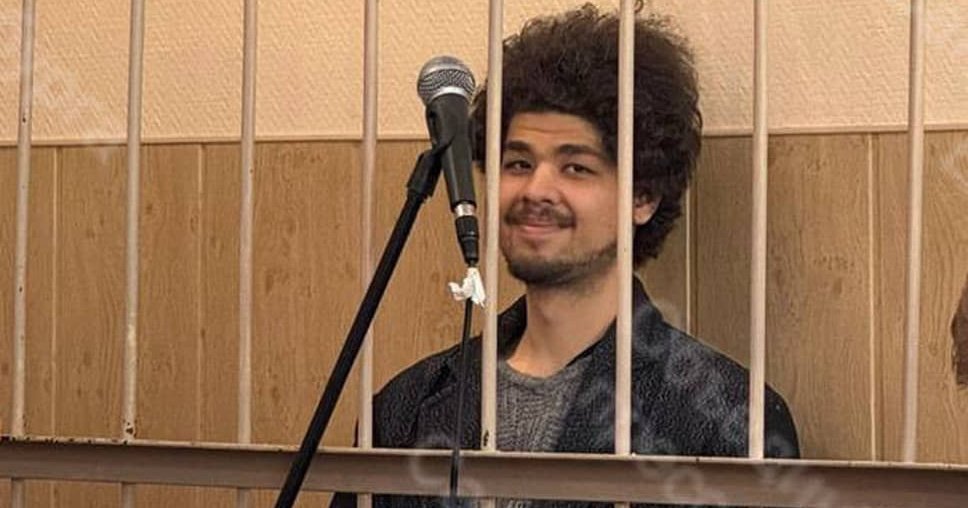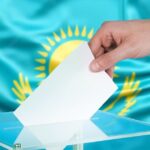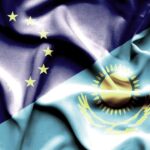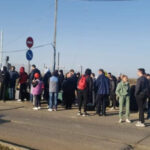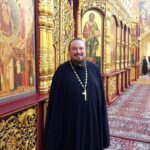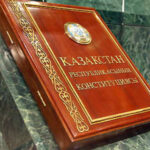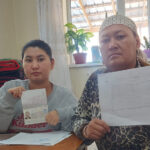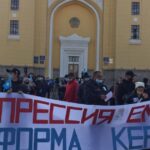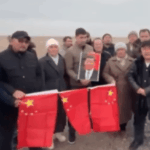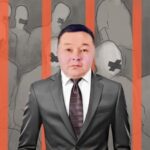Once again, Russia violates its own Constitution by infringing upon the right to freedom of expression and the right to freedom of association, through the arrest of a group of students — including one Kazakh national — on the grounds of “justifying terrorism.”
Harry Azaryan is a 23-year-old Kazakh student, a graduate engaged in intellectual and activist work in Saint Petersburg. He was enrolled at a local institution of higher education, Saint Petersburg State University. He participated in study groups and political discussion circles, particularly focused on Marxism, social critique, and the organization of grassroots power. According to several sources, he was involved in the left-wing student group “Workers’ Power”, a militant collective inspired by Trotskyist ideas. His activities were thus theoretical, committed, but non-violent, carried out within the framework of academic and political exchange.
Harry Azaryan has been accused by the Russian security forces of publicly justifying and promoting terrorist activities, an offense that falls under Article 205.2 of the Criminal Code of the Russian Federation. This accusation is based in particular on his participation in a student gathering where he allegedly expressed slogans considered to justify terrorism, as well as on the discovery of activist brochures during searches. The case file also includes the transcript of a Marxism discussion circle, secretly recorded, in which Azaryan spoke about concepts such as revolution or regime change — statements that investigators have wrongly interpreted as calls for a violent overthrow of power. Although no violent act was committed or planned, the authorities are invoking presumed ideological ties to British Trotskyist activists, and suspect the organization “Workers’ Power” of being an extremist cell. Azaryan therefore faces serious criminal charges and the possibility of expulsion from Russian territory.
It is important to recall that the Constitution of the Russian Federation, in Article 29, guarantees to every person on Russian territory freedom of thought and speech. It explicitly states: “Freedom of thought and speech is guaranteed to everyone.” “No one may be forced to express their opinions and beliefs or to renounce them.”
It is also written that every citizen has the right to seek, receive, transmit, produce and disseminate information freely by any legal means, and that censorship is prohibited.
These fundamental guarantees are the cornerstone of any society founded on the rule of law and human rights. In light of these constitutional principles, the activities of Harry Azaryan and of his group “Workers’ Power”, should have been protected. Indeed, their actions — participation in theoretical discussion circles, distribution of political leaflets, organization of symbolic performances against the militarization of education — all fall within a peaceful, intellectual and political framework. No evidence of violent acts or plans for an attack has been presented; only ideas have been discussed, questioned, debated.
In a democratic society, it is not ideas that should be feared, but the refusal to hear them. That is why the attitude of the State should be guided by the well-known phrase: “I disapprove of what you say, but I will defend to the death your right to say it.”
By prosecuting young students for speaking of revolution, denouncing injustice, or expressing dissenting political opinions, the Russian state is not defending security — it is repressing thought. These students were not terrorists: they were studying, debating, engaging peacefully. They do not pose a threat to society; the real threat is a society that punishes words instead of engaging with them
Article 31 of the Constitution of the Russian Federation guarantees all citizens the fundamental right to assemble peacefully, without weapons, to organize meetings, rallies, demonstrations, marches, and pickets.
The arrest of Kazakh student Harry Azaryan reveals a flagrant violation of this constitutional right. These young people merely gathered peacefully, held debates, and participated in symbolic actions, without resorting to violence or armed provocation.
By arresting these individuals and accusing them of justifying or promoting terrorism, the authorities are overstepping their powers and undermining the freedom of assembly protected by Article 31. This unjustified repression once again deals a serious blow to the rule of law and sends an alarming signal about the increasing restriction of fundamental freedoms in Russia.
According to the criminal provision “Article 205.2 of the Criminal Code of the Russian Federation — Public calls for the implementation of terrorist activities, public justification of terrorism, or terrorist propaganda,” student Harry Azaryan risks being punished with a fine ranging from 100,000 to 500,000 rubles, or an amount equivalent to the income or salary of the convicted person for a period of up to three years, or a prison sentence of two to five years. Currently, the detainees are being held in FSB facilities, and it is impossible to contact Harry Azaryan.
On 16 May, the court sent the student to a detention centre for two months.
It is not the first time that Russia has sent young Kazakhs who have found themselves in the territory of the Russian Federation under arrest on political charges. Being under arrest is accompanied by torture. At the same time, after the attack on Ukraine, political repression in Russia increased tenfold.
His future is now uncertain. His arrest is based on fallacious grounds, disconnected from any factual or legal reality. Harry Azaryan has committed no act of violence, has incited no criminal action — he has merely exercised the rights granted to him by the Constitution of the Russian Federation: freedom of thought, speech, and assembly.
In truth, this arrest is neither grounded in law nor motivated by concrete facts. In this context, the actions of the authorities appear disproportionate and unjustified, revealing a troubling tendency to conflate political activism with the justification of terrorism.
This case highlights an abusive use of anti-terrorism legislation to silence dissenting voices, to the detriment of the very principles of the rule of law.

